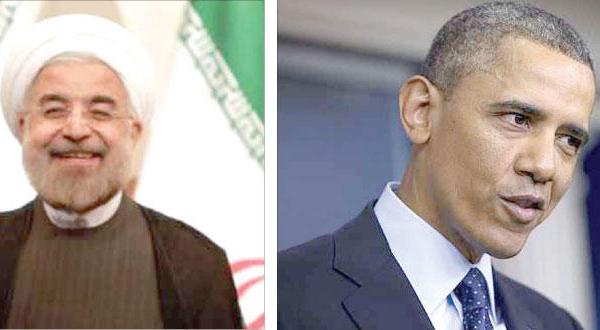Letter to Obama on his next Iran legislative challenge
Robert Satloff/The Hill/September 15/15
Congratulations, President Obama. You set out to win congressional approval of the Iran nuclear agreement – or, more precisely, avoid disapproval – and you executed this mission with merciless precision. You were masterful.
While the bar for victory was always low – just one-third of either house of Congress – you took no risks. You decided early on that your surest path to victory would be to maintain the loyalty of the Democratic base, even if it meant that an accord you described as the most important foreign policy decision in a decade would pass with minorities in both the House and Senate.
In contrast, one should note, the START treaty with the Soviets you like to cite as a previous example of “diplomacy with the devil” was approved with more than a two-thirds margin in the Senate; even the much-critiqued Iraq war resolution had majority support. In this case, your strategy was to present a “done deal,” wrap it in the international legitimacy of the UN Security Council, reject any possibility of improvement, paint any deviation as apocalyptic, and brook no serious dissent. It worked brilliantly. Operationally, the glide path from “We’re only talking, no decisions have been made” to “No deal is better than a bad deal” to “This deal or war” was smooth and seamless. From the moment there was only token opposition – a mere letter from the chairman and ranking member of the Senate Foreign Relations Committee – to your plan to take the Iran agreement to the UN even before letting Congress review its terms, you knew the game was won.
To be sure, many legislators, including many Democrats, were irked at being shackled with false choices and few options. They criticized the deal as flawed, faulty, incomplete and defective. If they had acted in unison, they would have had leverage to compel you to change course, even if only to secure meaningful improvements in the Iran deal, not to kill it altogether. But they couldn’t – or wouldn’t – work as one. Individually, several legislators tried to wrestle meaningful commitments from you in the form of “letters of assurance.”
However, a careful reading shows these were artfully drafted to project the aura of new commitments without accepting any substantive proposals to close loopholes or correct flaws in the agreement. In the end, just four of 46 Democrats in the Senate opposed the agreement. The fact that the Senate could not even muster cloture to register its formal disapproval is a sweeter result than you could have hoped for. One can only imagine how much better the nuclear deal would be if you had negotiated with Iran with as much hardball cunning as you dealt with Congress. Soon, the Iran debate will move on to its next phase, when legislators table numerous proposals to plug holes in the agreement and strengthen broader deterrence against Iran.
The key question is whether there is a legislative majority for the sort of sensible ideas that you have so far deflected in the pursuit of a ‘yes’ vote.
This doesn’t refer to proposals for increased military assistance to Israel and Gulf states threatened by Iranian adventurism; they will pass with huge margins and you will be pleased to sign them. Rather, these include such suggestions as calling on you to brief Congressional leaders on details of understandings your officials claim to have with European partners on how to penalize Iran for various types of violations of the deal, defining new sanctions to deter Iran from sending sanctions-relief funds to terrorist groups, transferring to Israel the mountain-busting Massive Ordnance Penetrator, and establishing as official policy a U.S. commitment to use “all means necessary” to prevent Iran’s accumulation, now or in the future, of the highly enriched uranium whose sole purpose is for a nuclear weapon.
These fixes would repair some of the most serious flaws in the Iran deal. They can be implemented without opening the deal to renegotiation. But they will rise or fall on two questions. The first is out of your control: “Will Republicans insist on poison pills that doom workable proposals?” Recent events in the House don’t augur well for this. But the second question is up to you: “Will you order your allies on the Hill to fight against sensible correctives the way you quashed any talk of ‘a better deal’ over the last two months?”You won the big fight, Mr. President. Americans across our political divide hope you agree that now is the time to get down to the business of repairing the flaws in the deal.
**Satloff is executive director of The Washington Institute for Near East Policy.




















